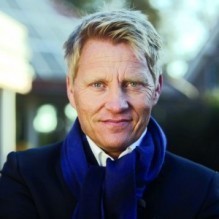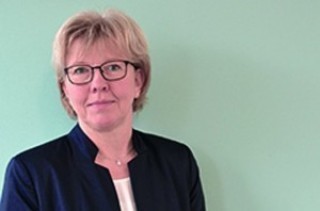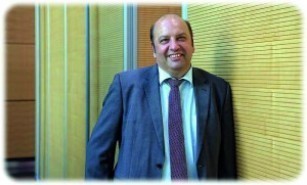VDE and ZVEI jointly organized the 10th Microelectronics Symposium 2021 - Corona-related online. The motto 'Innovation protects the climate' applies in particular to the microelectronics required in almost all new developments. Europe must remain technologically sovereign in order to successfully implement them.
New ecological and social challenges such as climate change and the mobility transition are increasing the demand for microelectronics products. In addition to semiconductor components for computer and communication technology, power electronics, for example for energy conversion processes, are becoming increasingly important. These trends and the importance of microelectronics for Germany as a business location were the focus of discussion at the 10th Microelectronics Symposium. Representatives from politics, science and industry discussed the potential of microelectronics with regard to securing Germany's future as a business location. The representatives of the ZVEI and the VDE emphasized the importance of microelectronics as a key technology for Europe and offered their support to the EU Commission and the EU member states in implementing the second 'Important Project for Common European Interest' (IPCEI) for microelectronics. After all, technological sovereignty does not come about by itself.
Microelectronics: Significant future potential
Conference chair Dr. Franz Auerbach, Infineon Technologies AG, opened the symposium and also thanked the EDA Center, Silicon Saxony e.V. and the sponsors for their support of the symposium: "Microelectronics is a very important key to innovations in the field of energy efficiency and resource conservation in the entire chain from electrical energy generation and energy transmission to energy consumption at the end consumer. Power electronics play an important role in energy conversion, just like classic microelectronics in intelligent control in energy management. "Innovations in these areas have already achieved a great deal and also offer considerable potential for the future."
Focus on framework conditions - from supply chains to young talent
In the politically oriented discussion round, the framework conditions for industrial and technological developments were discussed in the form of questions and answers. Moderated by Sven Oswald, MEN IN TEXT, ZVEI President Dr.-Ing. Gunther Kegel, Pepperl + Fuchs, VDE President Prof. Dr. Armin Schnettler, Siemens Energy, and State Secretary Thomas Bareiß, BMWI, discussed the topics.
As a representative of politics, Bareiß called for the German electronics industry to distinguish itself in international competition through technological leadership. "We need to differentiate ourselves through innovation and expertise, not through 'me too' products". Special attention must be paid to long-term training and research. The falling number of graduates in electrical engineering courses should be "viewed critically", he warned. After all, microelectronics is now "a key technology that no industry can do without".
Against the backdrop of current supply bottlenecks in the chip industry, Prof. Dr. Schnettler emphasized that Europe must remain technologically sovereign when it comes to key technologies such as microelectronics. And Dr. Kegel added: "In Europe, we need the ability to continue industrial production even in times of crisis and despite interrupted supply chains." Technological sovereignty does not mean isolationism and protectionism. "It is not necessary to be able to produce everything locally. Rather, it is important to maintain global value creation networks and at the same time secure and expand Europe's claim to leadership in important fields of technology. For companies, it is about resilience, i.e. dealing with uncertainties and risks in the globally networked digital world of the 21st century," says Kegel. As technological sovereignty in Europe does not emerge of its own accord, it is good that the German government, in close cooperation with other European member states, initiated an IPCEI project for microelectronics back in 2018. Kegel emphasized that it is now important to continue along this path and implement the second IPCEI for microelectronics as quickly as possible. VDE and ZVEI will continue to advise the EU Commission and the member states on IPCEI projects.
Schnettler also pointed out the need for a European technology strategy: "In order to maintain prosperity in the long term, we need a master plan for each technology. The sales market in important future fields such as digitalization, artificial intelligence, Industry 4.0, mobility and quantum technologies is hotly contested worldwide. In order to keep up with the competition, Europe must now make adjustments." Europe must step up its efforts to build up microelectronics production facilities. "The systemically relevant chip industry has an impact on the entire economy," he emphasized and demanded: "We must ensure that the product expertise for the individual fields of application remains in Germany." He saw patents, research and development and training as key levers for maintaining expertise and thus technological sovereignty in terms of industrial policy. While economic initiative dominates here, the state needs to create a "regulatory framework" to ensure a certain "depth of production in Europe" for microelectronic applications. EU-funded economic projects of particular European significance, such as those already being used in battery cell production, should also be expanded. A drain of expertise, such as that which has occurred in the once leading German photovoltaics sector, must not be repeated in microelectronics.
Keynotes: Power semiconductors and energy supply
'The 2020s - a Decade for Power Semiconductors' was the title of the presentation by Dr. Peter Wawer, Infineon Technologies AG. He made it clear that the decade that has just begun is a decade for power semiconductors. This is because they are involved wherever energy is converted into power, whether in electric vehicle drives, in the conversion of wind energy into green hydrogen or in the production of synthetic fuels. Accordingly, the technology is developing rapidly. By using new materials in the power semiconductor components, losses can be significantly reduced, enabling new applications and boosting growth rates. In terms of turnover, at around 20 billion dollars, they are currently still a niche in the overall semiconductor market, which currently has a turnover of around 500 billion dollars. But over the next ten years, experts predict growth in the sector of between eight and twelve percent. This will be driven by three megatrends that are only just beginning: the electrification of transport, the decarbonization of the energy sector and the digitalization of ever more areas of life.
Prof. Dr.-Ing. Jochen Kreusel, Hitachi ABB Power Grids, who is also a member of the VDE Executive Committee, addressed the technical and economic aspects of the energy transition in his presentation 'The future of electrical energy supply: smarter, more digital - and more electronic'. The costs of photovoltaics, lithium-ion batteries and smart sensors are falling. The price trend illustrates the dynamic: while a solar cell cost 76 $/W at the start of technical development, this amount had fallen to 0.3 $/W by 2015. The curve is similar for sensors, where the unit price has fallen from $30 in 2010 to $13. A further reduction is imminent with the further spread of sensor technology. The previously centralized network structure is changing. The grid is becoming more decentralized and at the same time more complex, autonomous and intelligent. This is because transparency and regulation are required at all levels and the regulation paradox cannot be tackled without digitalization. The electrical energy supply will therefore become smarter, more digital and more electronic. Kreusel described the energy transition as a special 'industrial policy opportunity' that must be seized. In addition to connectivity (especially with regard to e-vehicles), a learning culture is necessary for the energy transition.
Sustainability in the focus of the panel discussion
Sven Oswald also acted as moderator for the subsequent digital panel discussion, in which Prof. Dr.-Ing. Jutta Hanson, TU Darmstadt, Dr. Manfred Horstmann, Globalfoundries, Dr. Andreas Lenz, Member of the German Bundestag, Dr. Andreas Piepenbrink, HagerEnergy GmbH, and Prof. Dr. Ina Schieferdecker, BMBF, took part. His first question to the digital panel was: "How do you save the climate with your work?" This question, like the following ones, was answered by illustrating sustainability aspects and challenges using personal examples. Overall, there was optimism in the answers.
Hanson addressed the importance of transmission and feed-in grids. With the transition to renewable energies, a decentralized grid structure is emerging, which poses new challenges for electronic control, for example to maintain grid stability even in phases of "dark doldrums" without wind and sun.
Horstmann praised the European instrument of IPCEI funding as a successful approach that has enabled his company to become the largest European wafer manufacturer and called for a second IPCEI tranche in European microelectronics.
As a representative of the SME sector, Piepenbrink turned his attention to the heating market in the domestic sector and the change in energy storage technologies. One long-term trend that is currently not being promoted strategically enough is the coupling of electromobility with decentralized energy supply. "We will be able to store more electrical energy in electric cars than would ever be possible with hydrogen storage," said Dr. Andreas Piepenbrink with regard to the two energy storage options, which rely on elements of power electronics for their operation.
In his capacity as Chairman of the Parliamentary Sustainability Advisory Council, Lenz welcomed the positive contributions of microelectronics to climate protection. He added that politicians are constantly making adjustments in the area of energy legislation and are trying to bring more photovoltaics into urban districts with the 'tenant electricity model', for example.
For Schieferdecker, it was important that research funding for microelectronics not only focuses on chip development, but also on software and the system context. The aim must be to achieve "green ICT" along the entire value chain, taking into account the principles of sustainability and energy efficiency as well as "trustworthy electronics" with outstanding safety standards.
The 10th Microelectronics Symposium ended with a closing speech by Dr. Franz Auerbach. He rated the symposium as good despite the virtual mode and thanked everyone, expressing the wish that the 11th Microelectronics Symposium in 2022 will once again be a face-to-face event.







